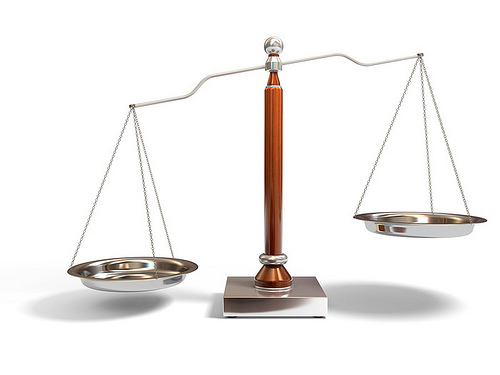Comparison: the Good and the Bad
“Comparison is the Thief of Joy” is a common saying, but I’m not sure who said it first. It is certainly true that some kinds of comparison can cause problems. But is all comparison wrong?
In order to think through this issue, I ran a quick Bible search in the New Testament looking at all of the comparative adjectives (183 of them to be precise). Rather than list all of them, I want to just give some general observations from Matthew.
Comparison in Itself is Not Wrong
The first comparative adjective in the New Testament is an acknowledgement by John the Baptist that there is one coming “who is mightier than I” (Matt 3:11). Additionally, in the Sermon on the Mount, Jesus gives the obvious implication that life is “more than food, and the body more than clothing” (Matt 6:25). Clearly both of these comparisons are meant to realize important facts: (1) Jesus surpasses John; (2) there is more to life than simply material possessions. Thus, we can conclude that just because one draws a comparison does not mean it is wrong. Comparison is part of the normal communication process, and whether we regard comparison as positive or negative will depend on the circumstances.
Analogy is a Helpful Comparison
In Matthew 9:5 Jesus compares two statements: “Your sins are forgiven” and “Get up, and walk.” The comparison is drawn out in which is “easier” to say. Technically it is far easier to say one’s sins are forgiven, because there is nothing that can be seen to demonstrate that. However, there must be physical proof of healing for a lame man to walk again. Thus, this comparison helps draw out an important greater-to-the-lesser analogy.
In similar fashion, Jesus uses comparisons in Matthew 10:15 and 11:9 to teach the significance of sin and ministry of John the Baptist. Analogy is a great teaching tool, and often analogy leads naturally to comparison.
Comparison Can Be Harmful
So far we have seen the positive side of comparison, but there is also evidence that not every circumstance or use would be positive.
In Matthew 18:1 the disciples came to Jesus asking which of them would be the greatest in the kingdom of heaven. Jesus kindly rebuked them—not in their desire for greatness, but because of their faulty definition of greatness. Notice that Jesus paints a picture that does not wipe out the need for comparison, but rather changes the standard of comparison. Jesus teaches his ambitious disciples that the greatest among them will be like children—humble and dependent (Matt 18:4).
Likewise, in Matthew 20, Jesus tells a parable about those in the kingdom. Some who had served God their whole lives thought they would receive different wages than those who had served God later in life (Matt 20:10). However, this assessment was wrong.
It is the vineyard owner who graciously agreed to give appropriate wages to these men. The vineyard owner never intended to make the wages dependent upon the value or worth of the laborer. The wages ended up not even being related to the amount of time worked in the field! The big takeaway is that to make a comparison between the different groups working in the vineyard is to actually diminish the grace and mercy of the vineyard owner.
So we find that comparison can be wrong when it is done with improper intentions or wrongful objectives. This is evident in many contemporary examples.
Many young women have had their joy robbed when they have compared her clothing with her friends. Many joys belonging to young men have disappeared when comparing material possessions with that of a friend. Social media has exacerbated the issue and led to many snares for the Christian.
For example, social media has led to what some call “social comparison” which is a driving factor in depression. The desire for more likes than a previous post, most retweets, or comments is addictive. Others fall prey to the simple temptation of comparing their lives with the extravagant travels or dining habits of their online friends. This often leads to bitter discontent.
We ought to remember that comparison can be helpful in our lives; but, the wrong kind of comparison should be removed from our lives.
Which Kind of Comparison is God Honoring?
Here are just a few questions to ask yourself on whether or not the comparison you are making is helpful.
- Am I becoming more humble and less proud of my accomplishments?
- Am I avoiding envy or jealousy?
- Am I prompted to live a holier life?
- Have I learned something wholesome and good because of this comparison?
- Have I hurt someone else or caused them to sin?
photo credit: balance scale via photopin (license)
